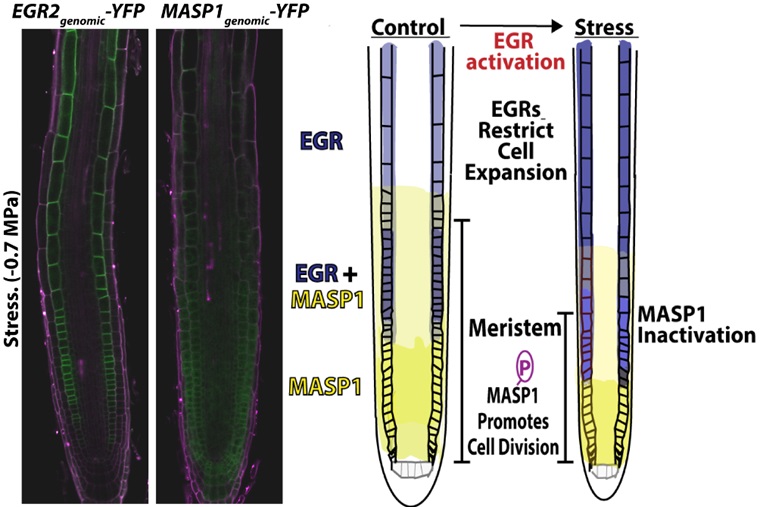[Paul Verslues] Opposing gradients of EGR phosphatase and Microtubule-Associated Stress Protein 1 control root meristem activity during drought stress.
POST:Plant growth is inhibited by even small decreases in water availability. During drought stress, poorly understood signaling mechanisms restrict both meristem cell division and subsequent cell expansion. In previous research, the Verslues laboratory discovered that the Clade E Growth-Regulating 2 (EGR2) protein phosphatases and their downstream signaling target Microtubule Associated Stress Protein 1 (MASP1) regulate growth during drought stress. New results demonstrated that EGR2 and MASP1 had opposing gradients of expression across the root meristem and had opposing effects on root meristem activity during stress (Longkumer et al., Plant Cell). Ectopic MASP1 or EGR expression increased or decreased, respectively, root meristem size and root elongation during stress. Along with the ability of phosphomimic MASP1 to overcome EGR suppression of root meristem size, and observation that ectopic EGR expression had no effect on unstressed plants, this indicated that EGR activation and EGR-dependent attenuation of MASP1 phosphorylation in the transition zone between cell division and cell expansion determines root meristem size and activity during drought stress. In contrast to EGR effect on meristem cell division, EGR effect on cell expansion was independent of MASP1. EGR2 was highly expressed in root cortex cells in the transition zone and cell elongation zone of the root tip. This further indicates that EGRs are key factors in stress response as cortex cells are proposed to be crucial for root growth regulation and hydrotropism during water stress.
Link : https://academic.oup.com/plcell/advance-article/doi/10.1093/plcell/koab290/6447514
